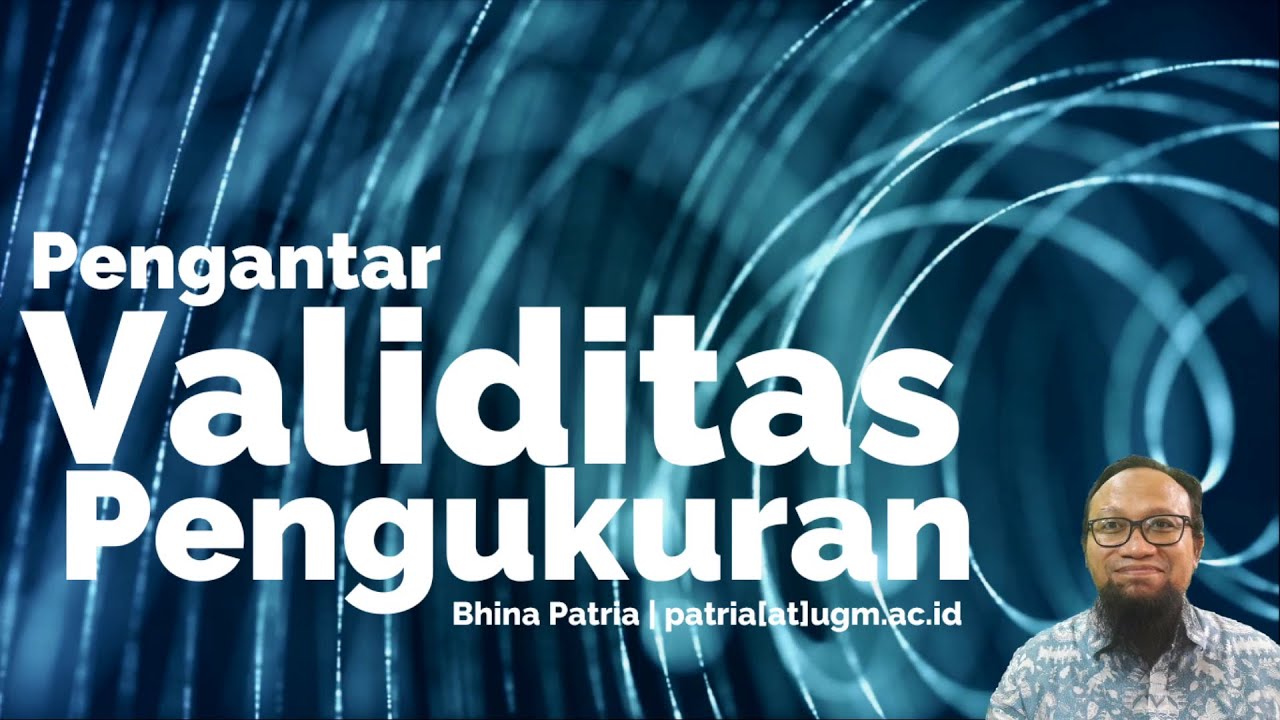Data Informasi Pengetahuan
Summary
TLDRThis video discusses the critical concepts of variables, data, information, and knowledge in research. Variables are the key elements researchers study, while data refers to raw facts that, when processed, become meaningful information. Information is data organized to provide value, aiding decision-making. Finally, knowledge is the application of information to solve problems and make decisions. The video explains how these elements form a cycle: raw data is processed into information, which leads to actionable knowledge, essential for effective research and decision-making.
Takeaways
- 😀 Variables are crucial in research, as they help answer research questions by providing data to study and analyze.
- 😀 A variable is any attribute or characteristic of the subject under study that can vary, such as gender, job type, or height.
- 😀 Data is a collection of facts or figures that are typically raw and not yet processed into meaningful information.
- 😀 Information is processed data that carries meaning and context, making it useful for decision-making or understanding a situation.
- 😀 Knowledge is the application of processed information to solve problems or make decisions, accumulated through experience and learning.
- 😀 Data can be converted into information through processing, and this cycle continues to inform further decisions or actions.
- 😀 Raw data, like numbers without context, does not provide any meaningful interpretation until it is processed into useful information.
- 😀 Information can be presented as reports, like sales or financial statements, where numbers (data) are transformed into actionable insights.
- 😀 Knowledge is different from information in that it involves using the processed information to gain understanding or solve real-world problems.
- 😀 The relationship between variables, data, and information can be seen as a continuous cycle where data is processed to form meaningful information, which is then used for decision-making and can be reconsidered as new data for further processing.
- 😀 The process of turning data into meaningful information involves giving context, such as interpreting raw data as a binary code or sales performance, which then guides decisions or insights.
Q & A
What is the role of variables in research?
-Variables are essential in research as they represent the elements being studied. They are defined and measured by the researcher and can take different values, providing the foundation for analysis and conclusions in the study.
How can variables vary in research?
-Variables can vary in terms of their values across different subjects or conditions in a study. For example, gender can vary between male and female, job types can vary, and even aspects like height, weight, and student competence can change.
What is the difference between data and information?
-Data refers to raw facts or observations that may not have inherent meaning, while information is data that has been processed and organized to have meaning or context. Information is useful for decision-making and understanding phenomena.
Why is data not immediately meaningful?
-Data in its raw form lacks context and does not convey specific meaning. For it to become meaningful, it needs to be processed, analyzed, or organized, which transforms it into information.
What is an example of data being transformed into information?
-An example is a spreadsheet where numbers (data) are organized and analyzed to produce financial reports (information). These reports provide context and can be used for decision-making.
How does the relationship between variables, data, and information work?
-Variables contain data, which is processed and analyzed to generate information. This information can then be used for decision-making, which might result in new data being collected and analyzed, continuing the cycle.
Can you provide an example of how data can be interpreted differently based on context?
-Yes, a binary number like 100100 might not mean much on its own. However, when placed in context, it could represent a decimal number, an ASCII code, or even a personal date like someone's birthdate, each of which has distinct meanings.
What is knowledge, and how does it relate to information?
-Knowledge is the application of information to solve problems or make decisions. It involves using processed information to address specific issues, and it is developed over time through experience and learning.
How is information used in decision-making?
-Information, when organized and contextualized, helps individuals or organizations make informed decisions. For instance, financial reports, which are forms of information, help businesses decide on investments or strategies.
What are the key differences between data, information, and knowledge?
-Data consists of raw, unprocessed facts. Information is data that has been processed and given meaning through context. Knowledge is the use of information to solve problems or make decisions, derived from accumulated experience and understanding.
Outlines

This section is available to paid users only. Please upgrade to access this part.
Upgrade NowMindmap

This section is available to paid users only. Please upgrade to access this part.
Upgrade NowKeywords

This section is available to paid users only. Please upgrade to access this part.
Upgrade NowHighlights

This section is available to paid users only. Please upgrade to access this part.
Upgrade NowTranscripts

This section is available to paid users only. Please upgrade to access this part.
Upgrade NowBrowse More Related Video

Cara Menyusun Desain Penelitian - Metode Penelitian Survey Part 3

Process of Conceptualisation

Pengantar Validitas Pengukuran

Metode Penelitian: Gambaran Umum dan Mengapa Perlu Dipelajari? #edukasi #kuliah #metode #penelitian

Cara Menentukan Variabel INDEPENDEN dan DEPENDEN Penelitian

How To Do Research As A Copywriter 🤖
5.0 / 5 (0 votes)